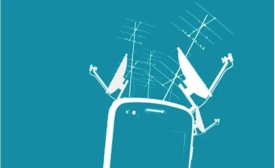international broadcasting
Russia has barred a U.S. journalist who is critical of President Vladimir Putin for five years, a move that could upset relations with the United States and has echoes of the Cold War. Moscow's treatment of David Satter could fuel concern about freedom of speech before the Winter Olympics in Sochi next month, although Putin has tried to appease critics by freeing former oil tycoon Mikhail Khodorkovsky and members of the Pussy Riot protest group in the run-up to the Games.
On behalf of the Broadcasting Board of Governors, which oversees civilian U.S. international media worldwide, BBG Chair Jeffrey Shell today issued the following statement regarding the Russian government’s refusal of a visa for David Satter.
Global media in public diplomacy has increasingly proved its usefulness in recent years. Many governments have competitively engaged in a war of public diplomacy through media to make their countries look attractive and friendly to foreigners while also setting the stage for others to understand their positions in the international arena. The success or failure of public diplomacy through media, however, can only be judged by its intended audience.
Russian President Vladimir Putin dissolved one of the country's official news agencies and an international radio broadcaster on Monday, setting up a new organization to be run by a news anchor known for his ultraconservative views. RIA Novosti, the news agency, and Voice of Russia, the broadcaster, will be absorbed by a new entity, Russia Today.
Two weeks ago we looked at Beijing's continuing efforts to maintain control of both its mainstream and social media scene. This week, we delve deeper into the country's relationship with the international media and the concerns authorities have inside China about how the country is covered from the outside. On November 7, it was reported that the US-based financial news agency, Bloomberg, had self-censored reports on the business ties of senior government officials because of the implications the stories could have on Bloomberg's working relationships within the country.

CPD is pleased to present a report summarizing discussions from the March 2013 conference: "International Broadcasting in the Social Media Era." Key topics included participation, transparency, and the journalist’s changing role in today’s rapidly evolving mediascape.







